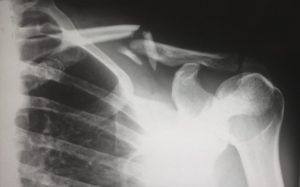Louisiana Law Protects People Injured In Accidents
It’s a simple fact of life: no matter how much one prepares, sometimes the unexpected rears its head. Accidents are a fact of life. Sometimes we are blessed with happy accidents. Other times, accidents throw a wrench in our life and livelihood.
Around the world, between 20 – 50 million people are injured each year in vehicular accidents. That’s a pretty staggering number, to say the least. Other accidental injuries may occur at one’s job, at a hotel or other privately owned establishment, or, if one is a renter, at their own home, among other places.
When people are injured suddenly, they may find themselves facing unexpected medical bills. In addition to bodily injuries, people may also need to deal with damage to their property—such as their vehicle in the case of a traffic accident—or lost wages from being forced to miss work. These are just a few of the unexpected costs that can arise in the wake of an accident.
When people are injured suddenly, they may find themselves facing unexpected medical bills. In addition to bodily injuries, people may also need to deal with damage to their property—such as their vehicle in the case of a traffic accident—or lost wages from being forced to miss work. These are just a few of the unexpected costs that can arise in the wake of an accident.
Most regular folks don’t have thousands in spare cash just sitting around waiting to cover some surprise expenses. Fortunately, the law protects people who have been injured by accident. Persons who can demonstrate that their injuries were incurred due to the negligence or wrongdoing of another can receive legal compensation for their damages.
If you’ve spent any time watching cable TV or just driving on the interstate, you likely already know about the existence of personal injury claims. However, there are loads of misconceptions out there about what a personal injury claim actually entails, and how to most effectively pursue compensation for your injuries.
That’s why Bloom Legal created this Personal Injury Handbook—to answer all the questions and dispel all the misinformation. Our personal injury attorneys have been practicing this type of law for a decade and a half, and we have done our best to share all their knowledge here.
Bloom Legal, a New Orleans based law firm, fights for people who have fallen on hard times. We understand the difficult position one finds themselves in following an accident. We believe that the most important factor in these situations is our clients’ health. That’s why we always do everything we can to take care of the legal complications and processes, so that our clients can focus on their healing and rehab. That’s also why we made the Personal Injury Handbook—because we don’t think you should have to face this by yourself.

We help connect you with the medical care you deserve, to get you back on your feet quickly and effectively.
When Does a Personal Injury Case Qualify For Compensation?
In order to pursue compensation for injuries sustained from an accident, you must be able to show that the accident was caused due to the negligence or wrongdoing of another person or entity.
Any damages sustained from such an accident would become the financial responsibility of the at-fault party. In some cases, the at-fault party may admit that they are to blame, and agree to negotiate a settlement out of court. In other cases, a lawsuit may need to be filed in order to pursue due compensation. Oftentimes, insurance companies, individuals, and businesses want to reach a settlement as quickly as possible, and avoid a trial, as a drawn-out legal process can become expensive.
What Constitutes Negligence or Wrongdoing When Calculating Fault?
These terms can be difficult to define, since they are often unique circumstances in each personal injury case. For example, if you are involved in a car accident, there could be some discrepancy around who caused the crash.
- If someone rear-ends you while you’re driving, determining who is at fault should be rather cut and dry.
- However, if you are involved in a head-on collision at an intersection, you may have to do more work to show who was the at-fault party. For example, if you could show that the other driver ran a red light, then you would be able to prove them at fault.
- Evidence like police reports, witness testimonies, pictures and video may be used to prove who is at-fault.
Alternatively, if you are injured in an accident at a business or your place of work, due to an unsafe or poorly maintained environment, fault will likely be easier to determine. In the case of medical malpractice, if a medical professional suggests treatment that leads to further injury or medical complications, they may be guilty of negligence or wrongdoing.
In the event that a personal injury lawsuit becomes necessary and you have to go to court to pursue compensation, evidence of negligence and/or wrongdoing will need to be clearly presented and judged by a jury.

Will My Personal Injury Case Go To Trial?
When people imagine hiring a lawyer, many probably picture a court room, a judge and jury. However, in personal injury suits, trials are rarely necessary. In fact, about 95% of injury cases are worked out before trial becomes necessary.
Most injury cases end in a settlement between the two parties, with the victim receiving financial compensation. Defendants, and the insurance companies that represent them, typically want to settle cases as quickly as possible. If the case goes to trial they will not only have to pay for additional legal services and lawyers, but they also leave the fate of the settlement up to a jury. Therefore, they would rather settle the issue before trial becomes necessary and they incur additional expenses.
The settlement negotiation process is usually the most important part of a personal injury case. Many insurance companies have strategies for minimizing payouts, so it’s important to have a personal injury attorney on your side who has dealt with these types of negotiations before and can ensure their client gets the full compensation they are due.
Of course, when a settlement can’t be agreed upon by both sides, or when discrepancy of fault arises, a trial may be necessary. In this case, a Louisiana personal injury attorney will be prepared to take the other party to court and fight for you.
How Much Is My Personal Injury Case Worth?
Calculating how much your case is worth can be difficult. There are a number of different factors that can determine how much compensation you are due.
In personal injury cases, there are two types of damages:
- Economic Damages, also known as Special Damages
- Non-economic Damages, also known as General Damages
Economic damages, as the name suggests, refer to those damages that have a direct price tag attached, like medical bills, damage to property, loss of wages, or other out of pocket costs.
On the other hand, non-economic damages can be more difficult to calculate, since they aren’t so readily quantifiable. Non-economic damages include pain and suffering, disability or disfigurement, loss of quality of life, and more.
Most personal injury cases involve a settlement process. During this time, the victim and the defendant will try to reach a deal on compensation to be dispersed, so as to avoid filing a lawsuit and going to court.
This process can involve substantial negotiation from each side. The defendant, and oftentimes their insurance company, will naturally want to pay out the least amount possible. It is important to note that once a settlement has been reached on an injury, no further recourse can be sought legally for the same incident.
In other words: you have to get it right the first time. Sometimes, injuries may not be physically visible, or may manifest weeks or even months after an accident. In cases like these, if you have already settled, you will not be able to seek compensation for any further injuries after the fact.

Calculating Your Damages and Costs
It is important to keep a paper trail of your injury. Make sure you receive thorough, written notes from any doctors you visit for your injuries. Likewise, save receipts from any damages or repairs to vehicles or personal property. If you have to miss work, you should be able to produce documentation from your doctor and/or employer indicating the amount of time missed.
As a rule of thumb, the more documentary evidence you can provide, the better case you can build. Other useful evidence may be a police report of the accident, witnesses statements, and psych evaluations, among other things. A personal injury attorney can aide you in the evidence-gathering process, to ensure that you build the strongest case possible.
Adding up economic damages can be fairly straight-forward, since by definition these types of damages have direct monetary value. Non-economic damages, however, are a different story. How do you put a price tag on something like trauma, mental anguish, or disability?
These types of injuries—sometimes referred to collectively as pain and suffering—are most often calculated using the multiplier method, which works as follows:
- Calculate economic damages first by adding up all your medical bills, property damages, and monetary losses
- Multiply that number by a variable between 1.5 – 5
The number you choose to multiply by should be higher depending on factors such as the severity of your injury, the degree to which it alters your everyday life and mental state, and the degree of apparent fault on the part of the defendant, among other factors.
Let’s use the multiplier method in an example to show you how it works.
- Let’s say you were rear-ended at a stop sign. Your car accrued $2,500 in damages and you hurt your neck, resulting in $1,200 dollars in medical and physical therapy expenses.
- So your Special Damages are fairly easy to quantify.
$2,500 + $1,200 = $3,700 economic damages.
- Let’s say you also were forced to miss work and your quality of life was affected, as you were unable to drive for a time as you were wearing a neck brace. Now we need to calculate your General Damages.
- Start with you’re your quantifiable expenses, $3700. Since your personal life and work were both affected by your injury, let’s multiply by 3, using the multiplier method.
$3,700 x 3 = $11,100 total expenses.
As you can see, even with the multiplier method there is still a degree of estimation that goes into the process. A personal injury attorney, who has experience dealing with injury cases like your own, can help you most effectively calculate your damages to make sure you get the full compensation you deserve. At the end of the day, it’s best to aim higher rather than lower, since there will likely be a negotiation process involved in settlement proceedings.


